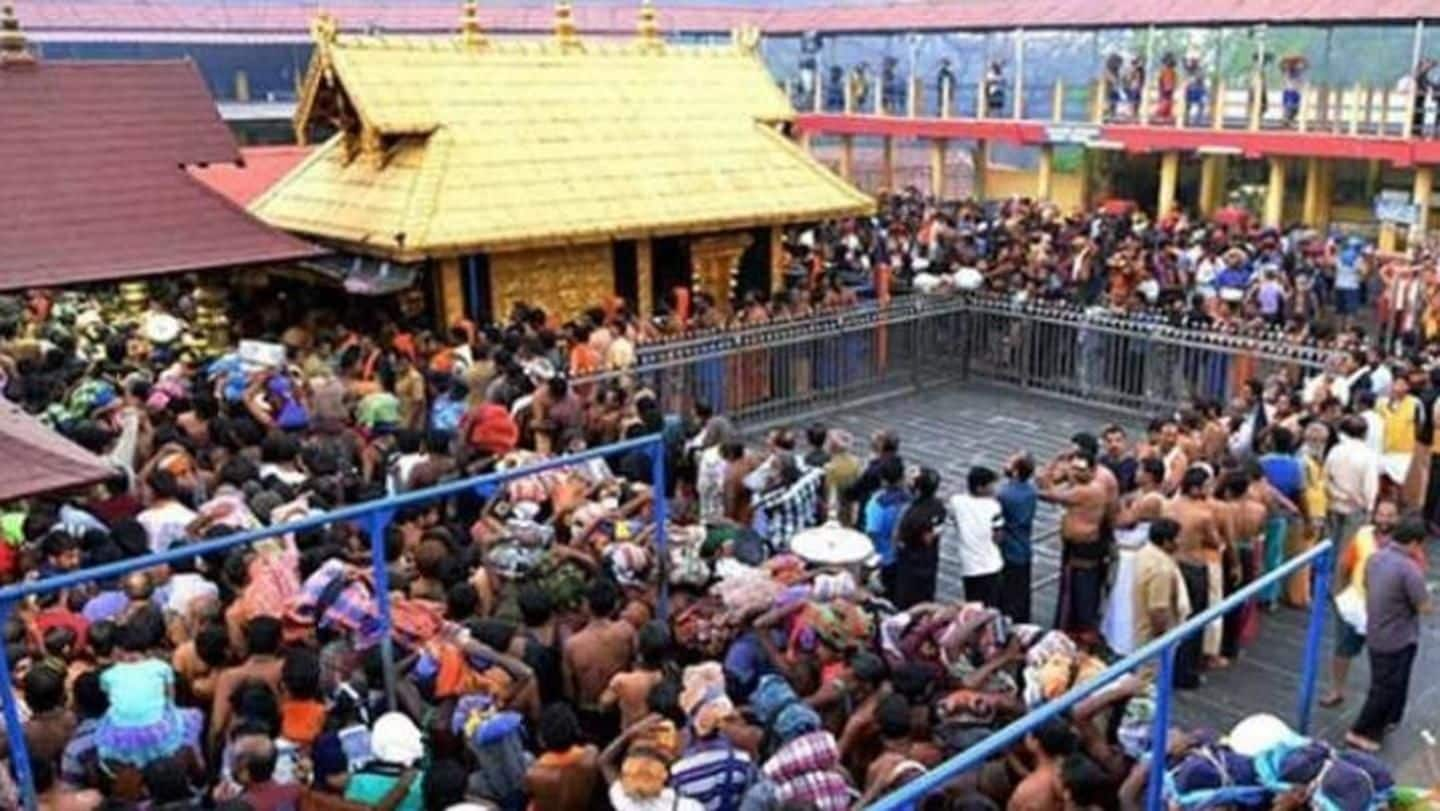
#BigWin: All women can enter Sabarimala Temple, says Supreme Court
What's the story
The Supreme Court on Friday allowed entry of women in the Sabarimala Temple of Lord Ayyappa in Kerala, giving a major victory to women's rights crusaders.
The five-judge constitutional bench, headed by CJI Dipak Misra, comprised Justices RF Nariman, AM Khanwilkar, DY Chandrachud and Indu Malhotra.
The hearings went on for eight days this year, after which the court reserved its judgment on August 2.
Quote
Devotees of Ayyappa don't constitute a 'separate religious denomination': CJI
Reading the majority judgment, CJI Misra said, devotees of Ayyappa do not constitute a 'separate religious denomination'. "Rule 3(b) of 1965 Rules is a clear violation of right of Hindu women to practice religion under Article 25," he added.
Judgment
Four judges agree with verdict, Indu Malhotra dissents
Four justices concurred with judgment, with Justice Indu Malhotra being the sole dissenting judge on the bench.
The bench said the existing rules were beyond the legal power of the Constitution.
Justice Nariman said, "There is no protection under Article 26 for Ayyappa devotees and therefore the rules will not apply insofar as Sabarimala is concerned".
The case
Backstory: Petitioners wanted to end 800-year-old ban
The Kerala Hindu Places of Public Worship (Authorization of Entry) Rules, 1965, authorized the restriction on women entry.
The Indian Young Lawyers Association filed a PIL seeking an end to the 800-year-old tradition.
The petitioner wanted orders to be given to Kerala government, the Travancore Devaswom Board, Chief Thanthri (priest) of Sabarimala Temple and the District Magistrate of Pathanamthitta, to end the ban.
Arguments
Indira Jaising represented 'Happy to Bleed' in court
Senior lawyer Indira Jaising represented 'Happy to Bleed' in the court.
"Article 17 is the solitary fundamental right which applies laterally to private parties. It is in pursuance of Article 17 that states have enacted Temple Entry Acts," she said.
She said the petitioners wanted right to enter and pray and weren't concerned with 'right to conduct rituals etc'.